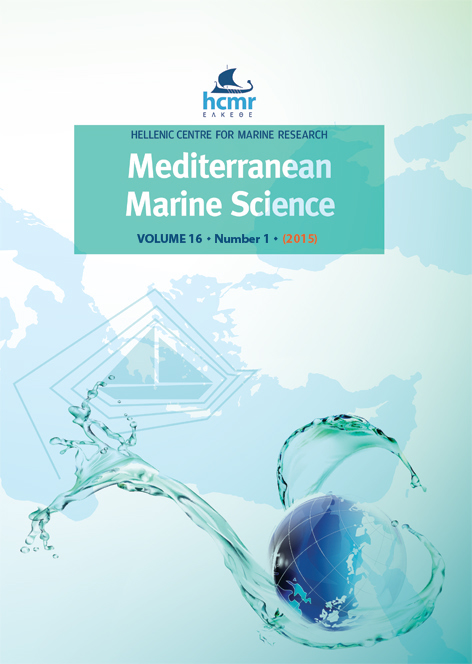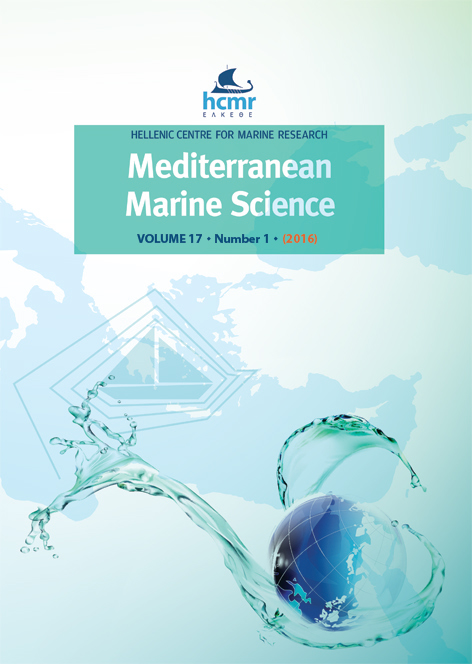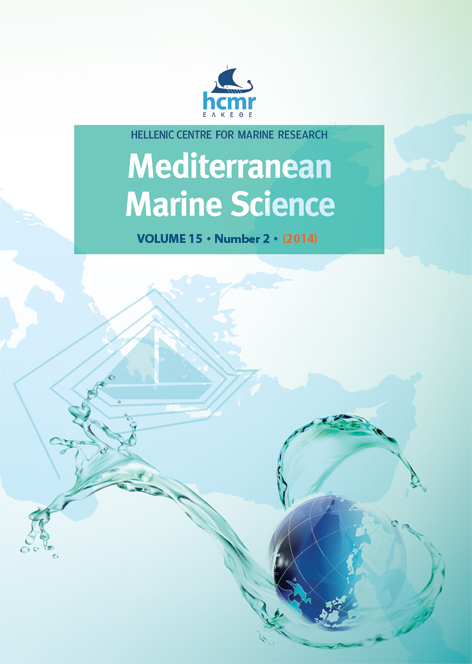Species identification of small pelagic fish schools by means of hydroacoustics in the Eastern Mediterranean Sea

Abstract
Reliable biomass estimates by means of hydroacoustics largely depend on the correct identification of acoustic targets. Data collected during five summer acoustic surveys (2004-2008) in the North Aegean Sea (Greece) were analyzed to explore effective discrimination of small pelagic fish schools according to the species they belong. Discriminant Function Analyses (DFA) using bathymetric, energetic and morphometric school descriptors as explanatory variables were applied per research cruise as well as to pooled data from all surveys. Results revealed that the schools can be successfully classified into the five species considered (anchovy Engraulis encrasicolus, sardine Sardina pilchardus, round sardinella Sardinella aurita, blue whiting Micromessistius poutassou, and Atlantic mackerel Scomber scombrus). The percentage of correct classifications in terms of number of schools was higher in the analyses of the annual cruises (75.6%-95.36%) than in the analysis of pooled data (≈72%). This is because of (i) the lower number of species, as well as (ii) the reduced intraspecific variability, occurring in each separate cruise. Significant differences were detected among school descriptors for the different species, revealing discrete aspects of schooling behaviour for each species. The benefit of the specific approach is that the classification functions of the DFAs can be used to classify a larger set of schools, which has not been possible to assign to specific species. Overall the approach constitutes an objective, more automated and less time consuming procedure for the analysis of acoustic data and can contribute to the improvement of biomass estimates in the area.
Article Details
- How to Cite
-
TSAGARAKIS, K., GIANNOULAKI, M., PYROUNAKI, M. M., & MACHIAS, A. (2015). Species identification of small pelagic fish schools by means of hydroacoustics in the Eastern Mediterranean Sea. Mediterranean Marine Science, 16(1), 151–161. https://doi.org/10.12681/mms.799
- Issue
- Vol 16, No 1 (2015)
- Section
- Research Article
Authors who publish with this journal agree to the following terms:
- Authors retain copyright and grant the journal right of first publication with the work simultaneously licensed under a Creative Commons Attribution Non-Commercial License that allows others to share the work with an acknowledgement of the work's authorship and initial publication in this journal.
- Authors are able to enter into separate, additional contractual arrangements for the non-exclusive distribution of the journal's published version of the work (e.g. post it to an institutional repository or publish it in a book), with an acknowledgement of its initial publication in this journal.
- Authors are permitted and encouraged to post their work online (preferably in institutional repositories or on their website) prior to and during the submission process, as it can lead to productive exchanges, as well as earlier and greater citation of published work (See The Effect of Open Access).







